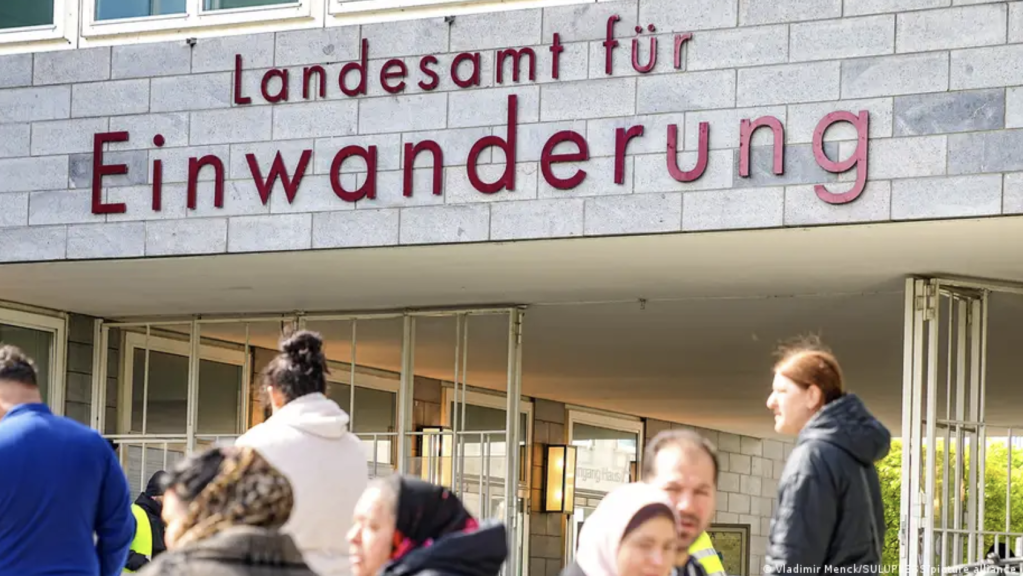A large-scale survey by the German Institute for Economic Research shows the proportion of refugees in Germany sending money abroad dropped from 13 percent to 7 percent over a 10-year period. Meanwhile, the proportion of migrants without refugee backgrounds who transfer money overseas rose from 8 percent to 12 percent.
Only 7 percent of refugees living in Germany sent money abroad in 2021, highlighting a decline in international transfers among those with a refugee background, a study found.
The German Institute for Economic Research (DIW) examined the money transfers abroad made by migrants with and without a refugee background from 2013 to 2022 and found that refugees send money abroad less often than other migrants. Based on a large-scale household survey, the study showed that the proportion of refugees who send money abroad fell from 13 percent to 7 percent. Meanwhile, the proportion of migrants transferring money overseas increased from 8 to 12 percent. According to the DIW, the likelihood of making monetary transfers decreases the larger the household and the lower the intention to return to the home country.
Different remittance behaviors
The DIW study, which is reportedly the first scientific and data-driven study on the remittance behavior of migrants, compared the remittance behavior of migrants with a refugee background (individuals who have been forced to seek asylum in another country because of persecution, conflict, or natural disasters in their own country) and migrants without refugee backgrounds (people who move to another country for employment, education, or to be reunited with other family members). The study found that a person's migration background and pathway impact their assimilation into their host country and also influence their reasons and capacity to send money to their countries of origin.
Read AlsoWithout immigration, Germany’s labor market would collapse within decades: study
The research highlighted that refugees often arrive in host countries under circumstances of distress and with limited resources or networks. These factors compound other barriers to social integration such as limited access to employment and sustained economic stability. In terms of money-sending behavior, refugees send funds mostly due to altruistic motives such as supporting family members in crisis, the study found.
In contrast, people with a regular and established migration pathway are more likely to secure steady employment and integrate socially and economically. With fewer financial constraints, this group could afford to send money abroad for more varied reasons such as altruism, investments, and maintaining cultural ties.
Numbers from Germany's Federal Bank indicate that annual remittances from Germany amounted to 22 billion Euros, catapulting Germany to the top of remittance-sending countries in Europe.

Reality does not reflect political debate
The DIW concluded that the political debate about how refugees spend their social benefits does not reflect reality.
"The idea that refugees who are dependent on basic welfare benefits send money abroad on a large scale lacks any empirical basis," Sabine Zinn, acting director of the DIW research arm unit Socio-Economic Panel (SOEP), said in a statement.
According to the DIW, money transfers abroad depend on family ties and plans to stay in Germany. In addition, international financial remittances provide an essential funding bridge for family members in countries of origin.
"The results (of the study) should also contribute to a reassessment insofar as these money transfers represent an important instrument for achieving the sustainable development goals," the DIW said.
Read Also
Germany: How much welfare do asylum seekers get, and is it a 'pull factor'?
Payment card for asylum seekers
Earlier this year, Germany announced that social benefits for asylum seekers in state-run centers would be distributed through a debit card instead of cash. Additionally, card withdrawals were capped at 50 euros per month, with exceptions for those with families and small children.
The payment cards (Bezahlkarten in German) were reportedly meant to deter money transfers abroad and paying criminal traffickers while also reducing the administrative burden on local authorities. However, migrant advocacy groups slammed the cards as discriminatory, particularly in Germany where many establishments remain cash-based. Asylum seekers reported that the payment cards were "stigmatizing", saying that people look at you funny when paying with the card.

In October, Germany announced that it would reduce asylum benefits in 2025. Under the updated Asylum Seekers Benefits Act, single individuals not living in shared housing will receive 441 euros per month, down from the previous 460 euros. Couples in shared housing or collective accommodations will see their monthly payments reduced from 413 to 397 euros. Subsidy rates for children, young people, and unmarried adults under 25 living with their parents are also set to decrease next year.
Read AlsoGermany to reduce welfare benefits for asylum seekers in 2025
